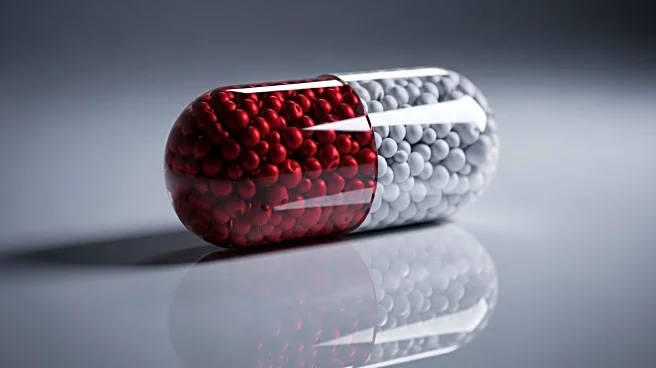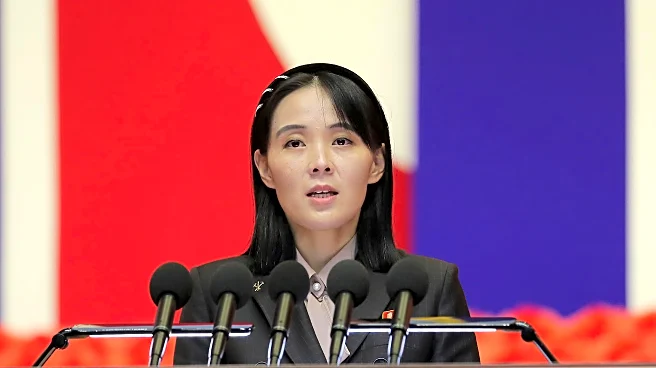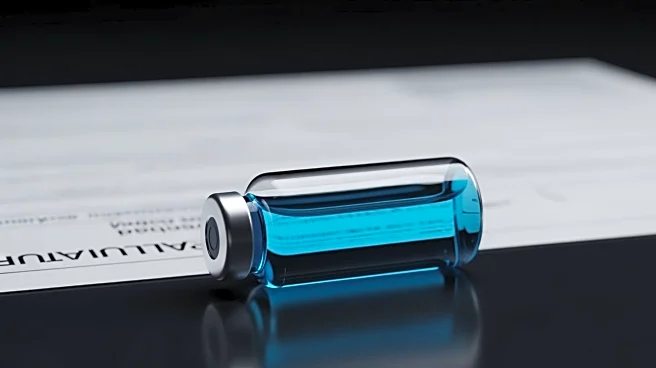What's Happening?
President Trump has announced that a 100% tariff will be imposed on branded or patented pharmaceutical products imported into the United States starting October 1. This decision marks a significant increase from the previously discussed 25% tariff and is set to be implemented sooner than anticipated. The tariffs will not apply to manufacturers that are building production facilities within the U.S. The announcement was made via a post on Trump's Truth Social platform, leaving many details unclear, such as the exact definition of 'branded or patented' products and whether generics are exempt. The move is part of Trump's broader trade strategy, which has previously exempted pharmaceuticals from reciprocal tariffs.
Why It's Important?
The imposition of a 100% tariff on imported pharmaceuticals could lead to significant price increases for American consumers, potentially exacerbating the already high cost of medications. The Budget Lab at Yale estimates that a 25% tariff could raise drug prices by 15%, costing households an additional $600 annually. The new tariffs could also result in shortages of smaller, less profitable brands. While large multinational pharmaceutical companies may be able to adjust by investing in U.S. manufacturing, smaller companies, particularly those in Asia, may struggle to adapt. The European Union may face less impact due to a trade agreement capping tariffs at 15%, but the UK could experience more severe consequences.
What's Next?
The pharmaceutical industry and international trade partners are likely to respond to this announcement. Companies may accelerate plans to establish manufacturing operations in the U.S. to avoid tariffs. Additionally, there may be legal challenges or negotiations to mitigate the impact of these tariffs. The U.S. government may also provide further clarification on the policy's scope and implementation.












